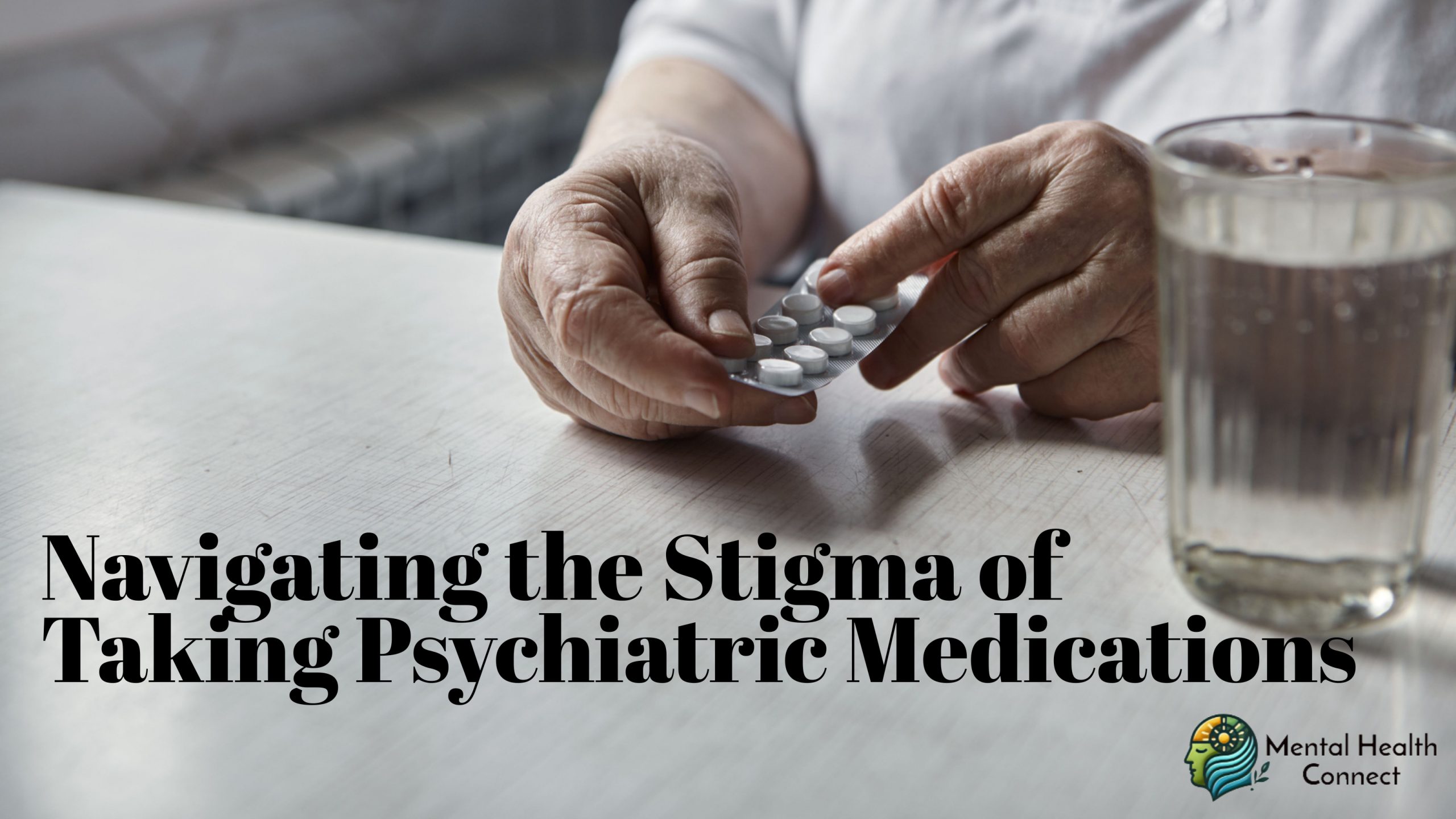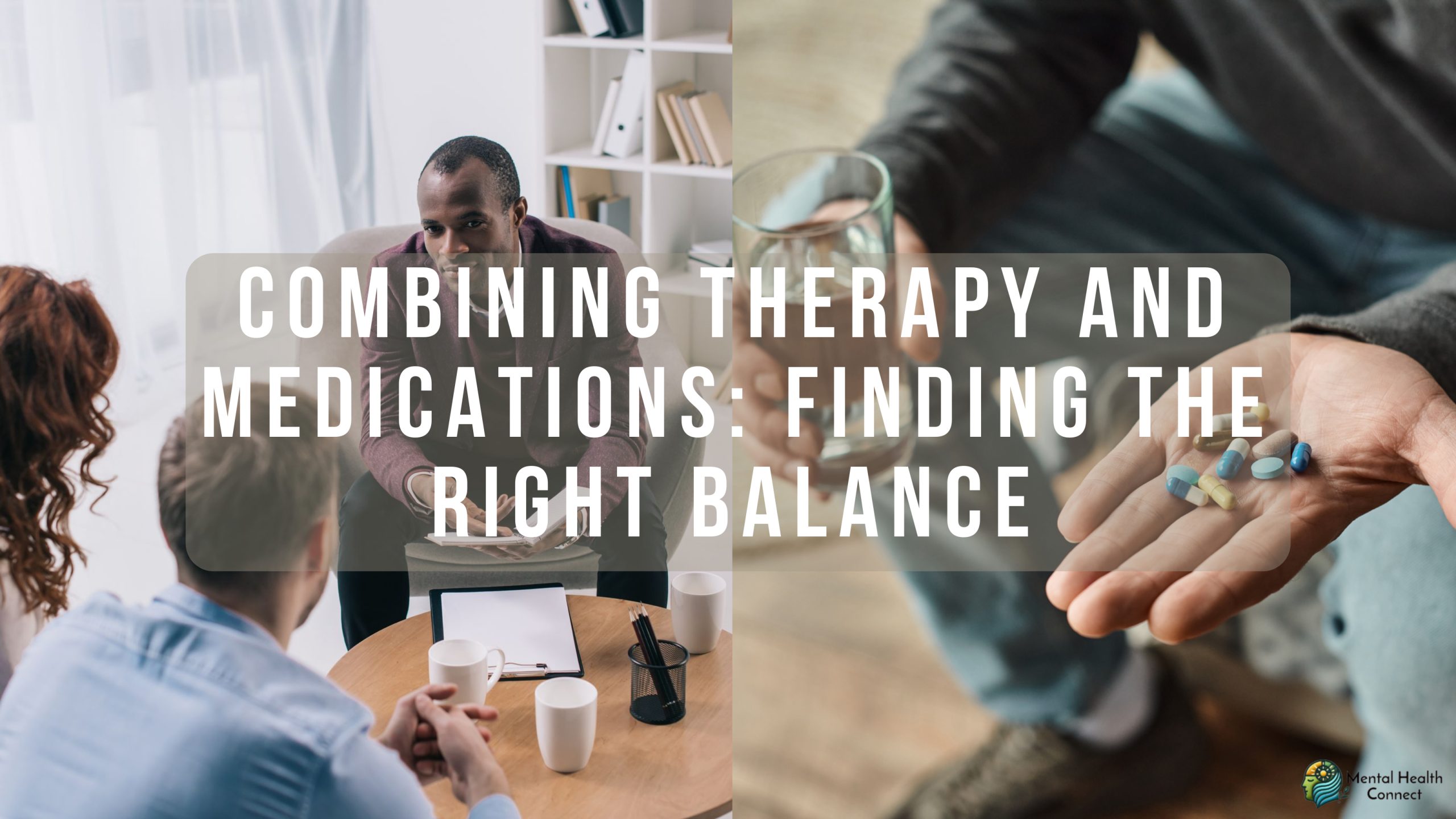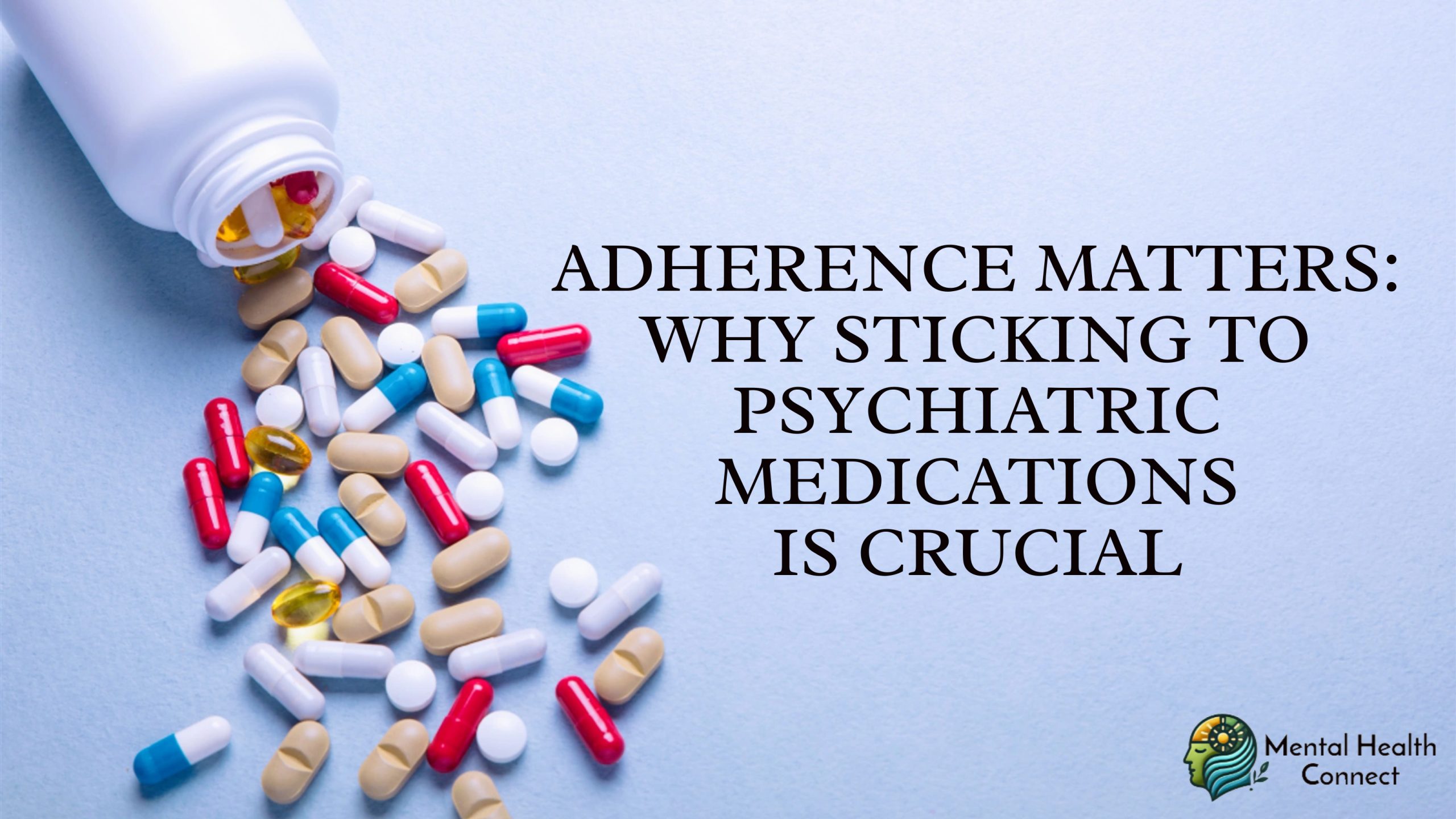Navigating the Stigma of Taking Psychiatric Medications

Despite significant advances in mental health awareness, many people taking psychiatric medications still face both external judgment and internalized shame. This stigma can create barriers to treatment, impact adherence, and add unnecessary suffering to those already managing mental health conditions. This comprehensive guide explores the nature of medication stigma and provides practical strategies for navigating these challenges while building supportive networks.
Understanding Medication Stigma
Stigma surrounding psychiatric medications operates on multiple levels, each with distinct challenges:
Societal Stigma
Broad cultural attitudes that can manifest as:
- Media portrayals of medication as unnecessary or character-weakening
- Workplace discrimination or subtle judgment
- Well-intentioned but harmful advice to “push through without pills”
- Assumptions about stability, capability, or personal responsibility
- Different standards compared to medications for physical conditions
Community and Family Stigma
Closer interpersonal stigma that might include:
- Family members questioning the need for medication
- Religious communities promoting prayer over medical treatment
- Cultural backgrounds where mental health treatment is viewed negatively
- Friends offering unsolicited advice about “natural alternatives”
- Well-meaning but uninformed concerns about dependency or changing personality
Self-Stigma
Perhaps most challenging is internalized stigma:
- Viewing medication use as personal failure
- Feeling “weak” for needing chemical assistance
- Worrying about identity changes or authenticity
- Shame about depending on medication for functioning
- Reluctance to acknowledge medication needs to others
The Impact of Medication Stigma
The consequences of these stigmatizing attitudes extend far beyond hurt feelings:
- Delayed treatment seeking, often for years after symptoms emerge
- Poor medication adherence leading to relapse or hospitalization
- Unnecessary suffering as treatable conditions remain unaddressed
- Secrecy that can create additional stress and isolation
- Discontinuation of effective treatments due to external pressure
- Missed opportunities for connection with others with similar experiences
Reframing Medication Use
Addressing stigma begins with developing a more balanced perspective:
The Medical Reality
Mental health conditions involve measurable biological components:
- Brain imaging studies demonstrate structural and functional differences
- Genetic factors contribute significantly to vulnerability
- Neurotransmitter systems show measurable alterations
- Inflammatory processes and stress hormones play important roles
- Similar biological processes underlie both “physical” and “mental” conditions
The Medication Reality
Common misconceptions about psychiatric medications can be addressed with facts:
- Most psychiatric medications are non-addictive
- Medications don’t change core personality, but rather reduce symptom interference
- Many people take medications temporarily during acute periods
- Others manage chronic conditions long-term, similar to diabetes or hypertension
- Medication often works best as part of a comprehensive approach
- Individual responses vary widely based on genetics and other factors
Practical Strategies for Managing External Stigma
Deciding When and How to Disclose
Thoughtful disclosure strategies can help manage external stigma:
- Recognize disclosure as a personal choice, not an obligation
- Consider the context and relationship before sharing
- Begin with trusted individuals who have shown understanding
- Practice brief, matter-of-fact explanations that feel comfortable
- Prepare simple responses for unsolicited advice or questions
- Remember that medical information is private, even from family
Responding to Unhelpful Comments
Prepare responses for common stigmatizing statements:
- “Have you tried exercise/vitamins/positive thinking?” – “I’m addressing this comprehensively with professional guidance.”
- “Do you really need to be on those?” – “This is a decision my doctor and I have made carefully.”
- “Those medications are just a crutch” – “Yes, like glasses are a crutch for vision or insulin for diabetes.”
- “Aren’t you worried about being dependent?” – “I’m more concerned about the impact of untreated symptoms.”
- “You seemed fine before medication” – “Many people with mental health conditions become skilled at hiding symptoms.”
Educating Others
When appropriate and when you have the energy:
- Share reliable resources from trusted organizations
- Correct misconceptions with factual information
- Offer personal examples of how treatment has helped, if comfortable
- Focus on similarities between mental and physical health conditions
- Emphasize the science behind mental health treatment
Overcoming Internal Stigma
Cognitive Reframing
Challenge self-stigmatizing thoughts with these perspectives:
- Taking medication demonstrates self-awareness and commitment to well-being
- Managing a health condition often requires multiple approaches
- Using available tools shows wisdom, not weakness
- Your value as a person is not diminished by needing medication
- Treatment allows you to be more fully yourself by reducing symptom interference
Building Self-Compassion
Develop a kinder internal dialogue:
- Speak to yourself as you would to a friend in a similar situation
- Recognize common humanity—millions take psychiatric medications
- Acknowledge the courage it takes to address mental health needs
- Practice gratitude for having treatment options available
- Focus on functionality and quality of life rather than abstract ideals
Creating Supportive Environments
Finding Your Community
Connection with understanding others reduces isolation:
- Consider peer support groups (in-person or online)
- Explore condition-specific organizations and forums
- Look for mental health advocacy opportunities
- Connect with others who understand medication experiences
- Build relationships based on mutual understanding and respect
Working with Healthcare Providers
Optimize your treatment relationships:
- Choose providers who address your concerns without dismissal
- Discuss stigma concerns openly with your treatment team
- Ask questions until you fully understand your treatment rationale
- Request resources for family members who might need education
- Report side effects promptly rather than silently discontinuing
- View treatment as a collaborative process requiring mutual respect
Creating Boundaries
Protect your wellbeing while navigating social contexts:
- Prepare for family gatherings where medication questions might arise
- Develop strategies for workplace situations that might trigger stigma
- Identify when to engage in education versus when to protect your energy
- Consider limiting time with consistently unsupportive individuals
- Recognize when “helper fatigue” requires stepping back from advocacy
Special Considerations
Cultural and Religious Contexts
Navigate complex cultural factors:
- Acknowledge that stigma varies significantly across cultural backgrounds
- Find providers who understand your cultural context when possible
- Identify compatible cultural values that support treatment (e.g., self-care, community health)
- Consider whether specialized cultural support groups exist
- Balance respect for traditional values with your treatment needs
Workplace Considerations
Navigate professional environments carefully:
- Understand your legal rights regarding disclosure and accommodation
- Consider the potential impact of disclosure in your specific workplace
- Focus on performance and necessary accommodations rather than diagnosis details
- Develop relationships with supportive colleagues when possible
- Document any concerning interactions that might represent discrimination
The Power of Personal Narrative
Reclaiming Your Story
Transform experiences with stigma into personal growth:
- Develop language that feels authentic when discussing your health journey
- Recognize how overcoming stigma has built resilience
- Identify values that have been clarified through these challenges
- Consider whether sharing your experience might benefit others
- Find meaning in both struggles and successes with treatment
Navigating medication stigma requires persistence, self-compassion, and strategic approaches to both internal and external challenges. Though stigma creates unnecessary obstacles, developing these skills can ultimately strengthen your recovery journey and potentially help others facing similar challenges. By building supportive environments and challenging stigmatizing attitudes, you contribute to broader social change while prioritizing your own well-being—a truly worthwhile endeavor.
Frequently Asked Questions About Medication Stigma
How do I know if stigma is affecting my treatment decisions?
Signs include feeling shame about taking medication, hiding your treatment from important people in your life, considering stopping medication despite its effectiveness, or delaying treatment despite significant symptoms.
What’s the best way to tell a new romantic partner about psychiatric medication?
Consider timing (not too early but before the relationship becomes serious), choose a calm private setting, present information matter-of-factly as a health consideration rather than a confession, and be prepared to provide basic education while setting boundaries around detailed questions.
How can I help a family member who refuses medication due to stigma?
Focus on listening non-judgmentally, share information from trusted sources, offer to accompany them to appointments, connect them with peers who’ve had positive experiences, and respect their autonomy while expressing your support for their wellbeing.
What if my cultural or religious background conflicts with taking psychiatric medication?
Look for healthcare providers familiar with your cultural context, explore whether community leaders with more progressive views might offer perspective, consider whether values like caring for family or fulfilling responsibilities might align with treatment, and seek support groups specific to your background.
How do I handle being told I should stop my medications once I’m feeling better?
Explain that maintenance treatment often prevents relapse (similar to continuing blood pressure medication), share that discontinuation decisions should be made with healthcare providers, and consider whether a brief analogy to chronic physical conditions might help clarify your perspective.



Leave a Reply